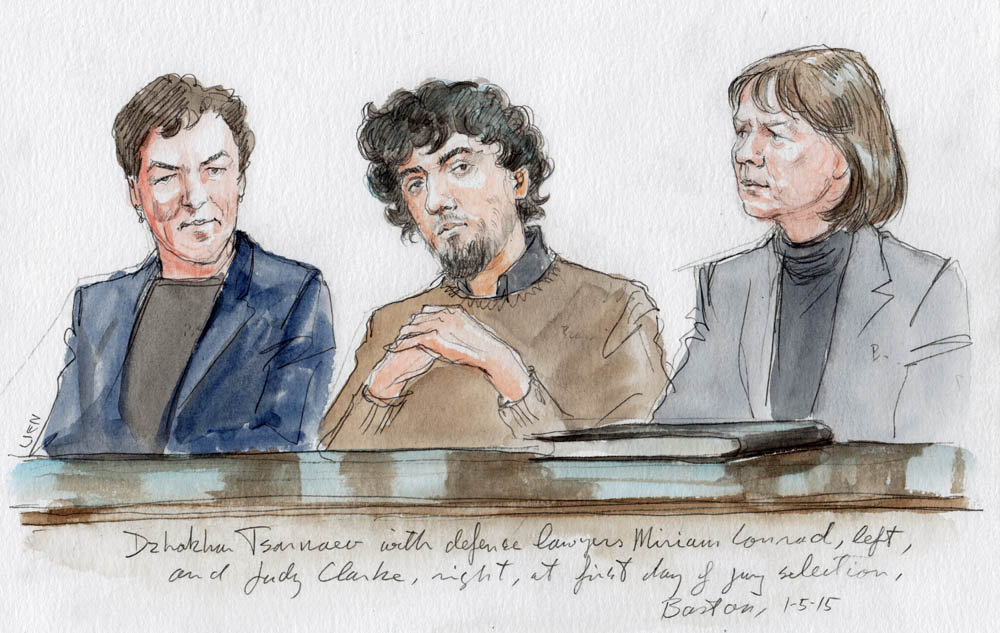
Wednesday, Jan. 7, marks the last day potential jurors for the Dzhokhar Tsarnaev trial will fill out a questionnaire to help determine if they’ll be selected to sit on the bench. The prosecution and defense will consider a number of factors for who could best administer justice in this case. They’ll whittle that number down significantly and have a pool back in court Jan. 15. Twelve will be selected, with six alternates, and the trial proper will commence Jan. 26.
The trial is now in recess until a week from tomorrow so that O’Toole and the trial teams can review the completed questionnaires.#Tsarnaev
— Laurel J. Sweet (@Laurel_Sweet) January 7, 2015
Prior to jury selection, the defense filed motions to relocate the trial out of Boston on the grounds that a Bay State jury would not offer an unbiased perspective. Judge George O’Toole ruled that the trial would continue at the Joseph Moakley Federal Courthouse on the South Boston waterfront as planned.
An impartial jury is crucial to the integrity of the case, and that sentiment will be weighed heavily by both sides. Northeastern University School of Law’s Daniel Medwed, a professor of criminal law, evidence and advanced criminal procedure, told BostInno potential juror’s points of view on capital punishment will also be a major component.
“This case, at bottom, seems less about guilt or innocence than about the appropriate punishment,” Medwed said. “The prosecution will likely be keen on finding people who strongly believe in the merits of the death penalty while the defense will seek jurors who appear to have misgivings about it, even if they express a willingness to apply it in certain circumstances.”
Medwed also said that ethnicity is an underlying factor when it comes to peoples’ belief in the death penalty. Some data indicates that African-Americans are generally opposed to capital punishment at a greater rate than Caucasians. The nonprofit law organization, The Equal Justice Initiative, published a study in 2010 backing up this claim.
“It is possible, then, that people of color may be under-represented on the jury because many of them may be dismissed for cause based on moral objections to the death penalty,” Medwed said.
Further lending credence to the notion that a diverse jury is less likely to evoke capital punishment is a 1998 report by Richard C. Dieter, Esq. executive director of the Death Penalty Information Center. It concludes that the majority of cases in which the death penalty is the sentence are determined by whites.
“Key decision makers in death cases around the country are almost exclusively white men,” the report reads. “Of the chief District Attorneys in counties using the death penalty in the United States, nearly 98% are white and only 1% are African-American.”
But it’s important to consider that lawyers have 20 peremptory challenges, which allows them to dismiss potential jurors without the need for any explanation. This cannot be used, however, on the basis of race, ethnicity, or sex alone.
Ethnicity aside, there’s also the murder of MIT police officer Sean Collier, for which Tsarnaev faces separate state charges. There’s the possibility that potential jurors with some kind of tie to MIT will be dismissed. If they’re not, however, it’s not an inconceivable notion that a juror’s connection to MIT will play into their determination of a capital punishment sentence.
